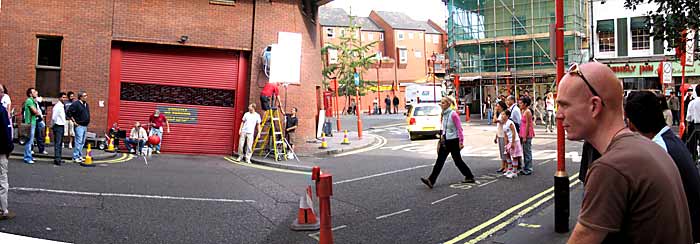Incredible, but true. A Microsoft recruiter offered Eric S. Raymond a job. The approach read, in part:
Microsoft is seeking world class engineers to help create products that help people and businesses throughout the world realize their full potential.
Your name and contact info was brought to my attention as someone who could potentially be a contributor at Microsoft. I would love an opportunity to speak with you in detail about your interest in a career at Microsoft, along with your experience, background and qualifications.
I would be happy to answer any questions that you may have and can also provide you with any information I have available in regard to the positions and work life at Microsoft.
At first Eric assumed it must be a joke, but apparently the approach was serious. His reply is worth quoting in full!
To: v -mikewa@microsoft.com
From: esr@thyrsus.com
I’d thank you for your offer of employment at Microsoft, except that it indicates that either you or your research team (or both) couldn’t get a clue if it were pounded into you with baseball bats. What were you going to do with the rest of your afternoon, offer jobs to Richard Stallman and Linus Torvalds? Or were you going to stick to something easier, like talking Pope Benedict into presiding at a Satanist orgy?
If you had bothered to do five seconds of background checking, you might have discovered that I am the guy who responded to Craig Mundie’s “Who are you?” with “I’m your worst nightmare”, and that I’ve in fact been something pretty close to your company’s worst nightmare since about 1997. You’ve maybe heard about this “open source” thing?
You get one guess who wrote most of the theory and propaganda for it and talked IBM and Wall Street and the Fortune 500 into buying in.
But don’t think I’m trying to destroy your company. Oh, no; I’d be just as determined to do in any other proprietary-software monopoly, and the community I helped found is well on its way to accomplishing that goal.
On the day *I* go to work for Microsoft, faint oinking sounds will be heard from far overhead, the moon will not merely turn blue but develop polkadots, and hell will freeze over so solid the brimstone will go superconductive.
But I must thank you for dropping a good joke on my afternoon. On that hopefully not too far distant day that I piss on Microsoft’s grave, I sincerely hope none of it will splash on you.
Cordially yours,
Eric S. Raymond
Don’t you just love that guff about “helping people and businesses throughout the world realize their full potential”! Interestingly, there are lots of critical comments on ESR’s Blog, accusing him of being childish and giving the Open Source movement a bad name. Which makes one wonder if any of the critics have even seen Steve Ballmer in action.




